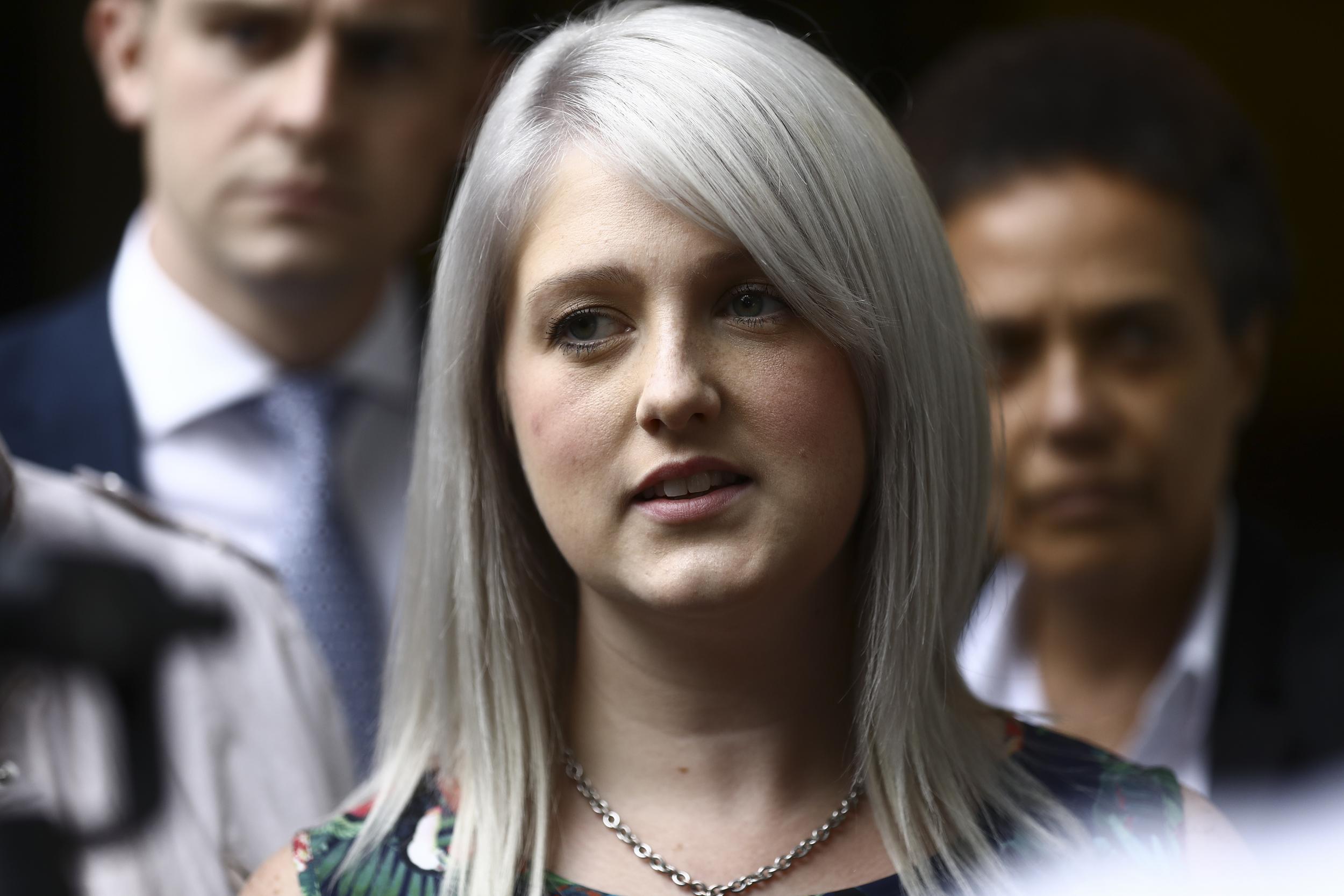Northern Ireland abortion restrictions breach UK’s human rights law, Belfast High Court rules
‘I’m feeling super relieved and happy,’ says Sarah Ewart, who was forced to travel to England to terminate her pregnancy

Northern Ireland’s strict abortion law which bans the procedure even in cases of rape or incest infringes Britain’s human rights obligations, the High Court in Belfast has ruled.
The case was brought by Sarah Ewart, who was forced to travel to England for an abortion after being told there was no way her unborn child would survive.
Justice Siobhan Keegan said Ms Ewart, who was denied an abortion back in 2013, was a victim.
“I’m feeling super relieved and happy,” Ms Ewart told The Independent. “It feels like a weight is lifted off my shoulders. It has been a long journey. It is six years this Monday coming.”
The 28-year-old said she was left “devastated and terrified” after learning she would have to make the journey to England for the first time to have an abortion.
“I cannot describe the fear of not knowing where I was going to have this procedure and who was going to carry it out,” she said.
“It was torture. Things would have been so different if I’d been able to have the abortion at home with family and friends and a medical team that know me.
“The whole court case has been a massive strain emotionally and physically, and a stress on family life and work. I’m having to relive what happens every time we go through court. I’m waiting for the day I can move on and stop reliving the story.”
Last year, the Supreme Court said abortion laws in Northern Ireland were in breach of human rights legislation.
But it also came to the conclusion the Northern Ireland Human Rights Commission did not possess the power to bring forward proceedings as it was not a victim of any unlawful act.
On Thursday, the court said in cases of fatal foetal abnormality – where doctors think the unborn baby will die during labour or before or after it is born – Northern Ireland’s abortion law conflicts with the UK’s commitments under the European Convention on Human Rights.
Justice Keegan postponed from making a formal declaration of incompatibility at this stage as MPs resoundingly backed the right to abortion in Northern Ireland in a historic vote in July.
Abortion will be decriminalised in Northern Ireland unless a devolved executive at Stormont is restored by 21 October.
Ms Ewart was made to travel to England for a termination after being told her pregnancy had a fatal foetal diagnosis, which was not deemed a legitimate reason to have an abortion in Northern Ireland.
She has since campaigned for a change to law in cases of fatal foetal abnormality.
There is currently a ban on abortion in almost all cases in Northern Ireland, and women seeking a termination can face life imprisonment.
Women can only terminate their pregnancy in Northern Ireland if there is either a risk to their life or of them suffering permanent mental or physical harm.
Official data shows just 12 abortions were carried out in Northern Ireland last year – with Amnesty International saying more than 900 women travelled to England and Wales for the procedure during the same time period.
A 12-year-old rape victim in Northern Ireland was previously forced to travel to England under police escort for an abortion.
Grainne Teggart, the Northern Ireland campaign manager at Amnesty International, which supported Ms Ewart in her case, said: “This groundbreaking ruling is a huge win for abortion rights in Northern Ireland.
“The court has spoken – the abortion law is a clear violation of our rights. Earlier this year parliament legislated to reform abortion law and bring an end to the near-total ban which has harmed many.
“Today’s ruling shows just how urgently we need change so that we can access this healthcare without having to travel and without being treated as criminals. There can be no delay – we must see free, safe, legal and local abortion services opening up within months.”
Subscribe to Independent Premium to bookmark this article
Want to bookmark your favourite articles and stories to read or reference later? Start your Independent Premium subscription today.

Join our commenting forum
Join thought-provoking conversations, follow other Independent readers and see their replies